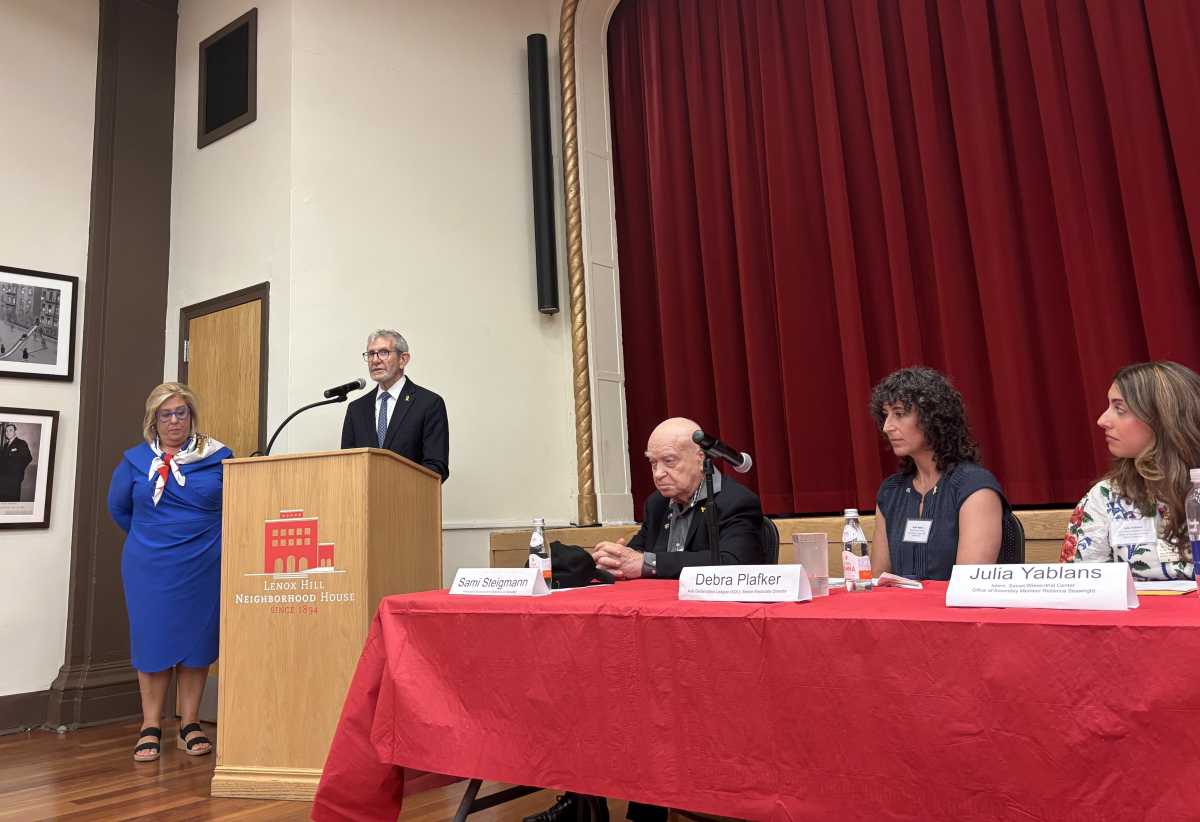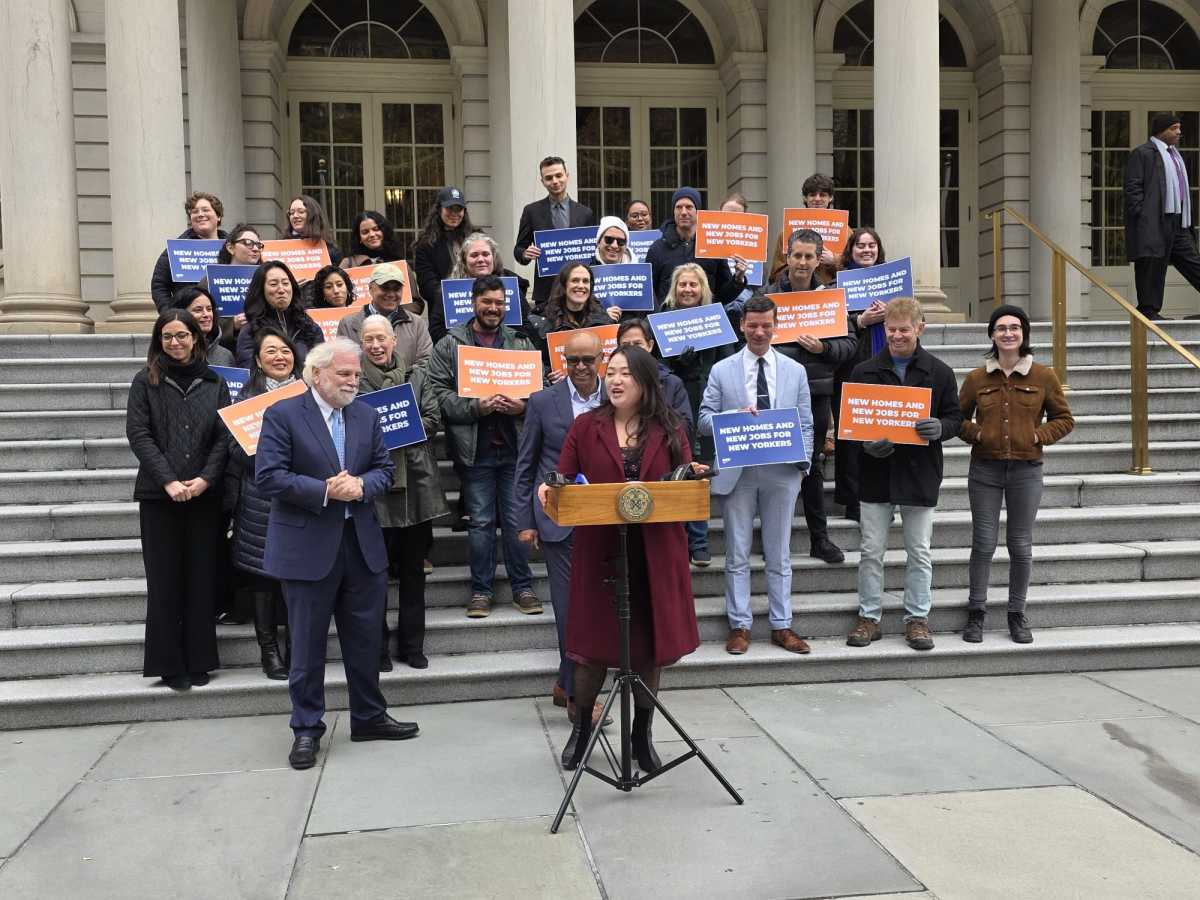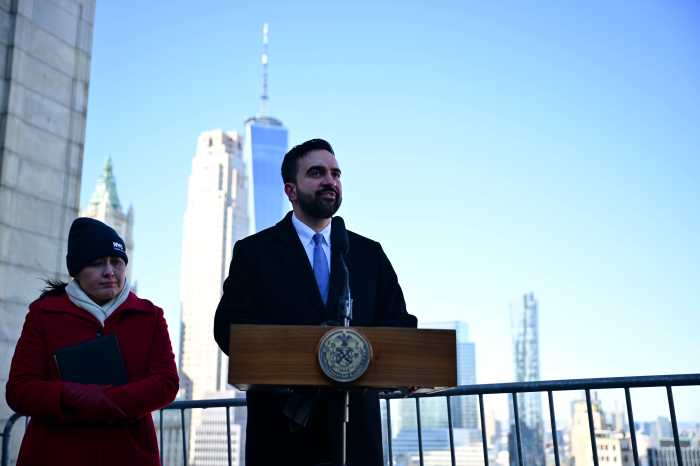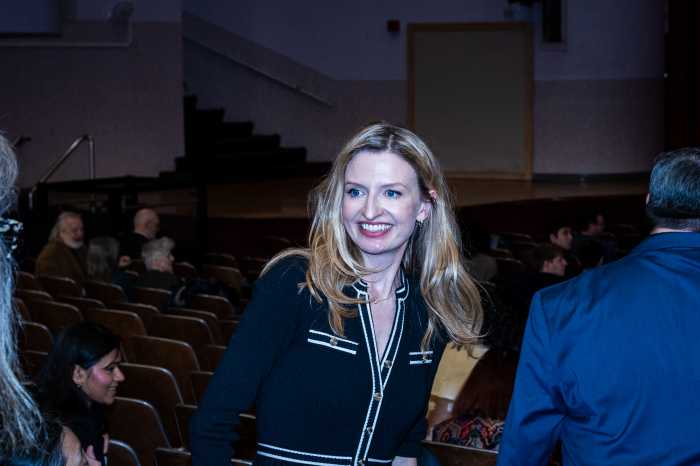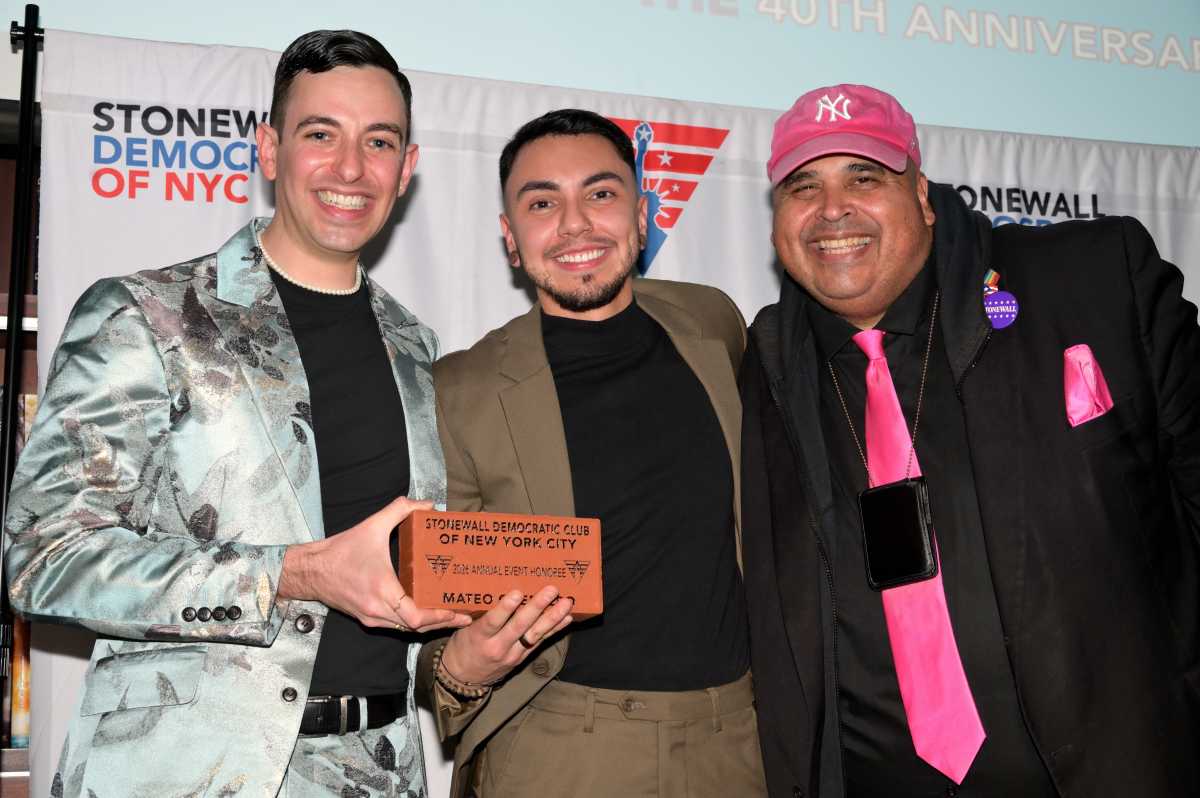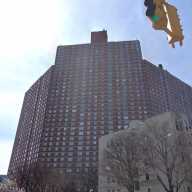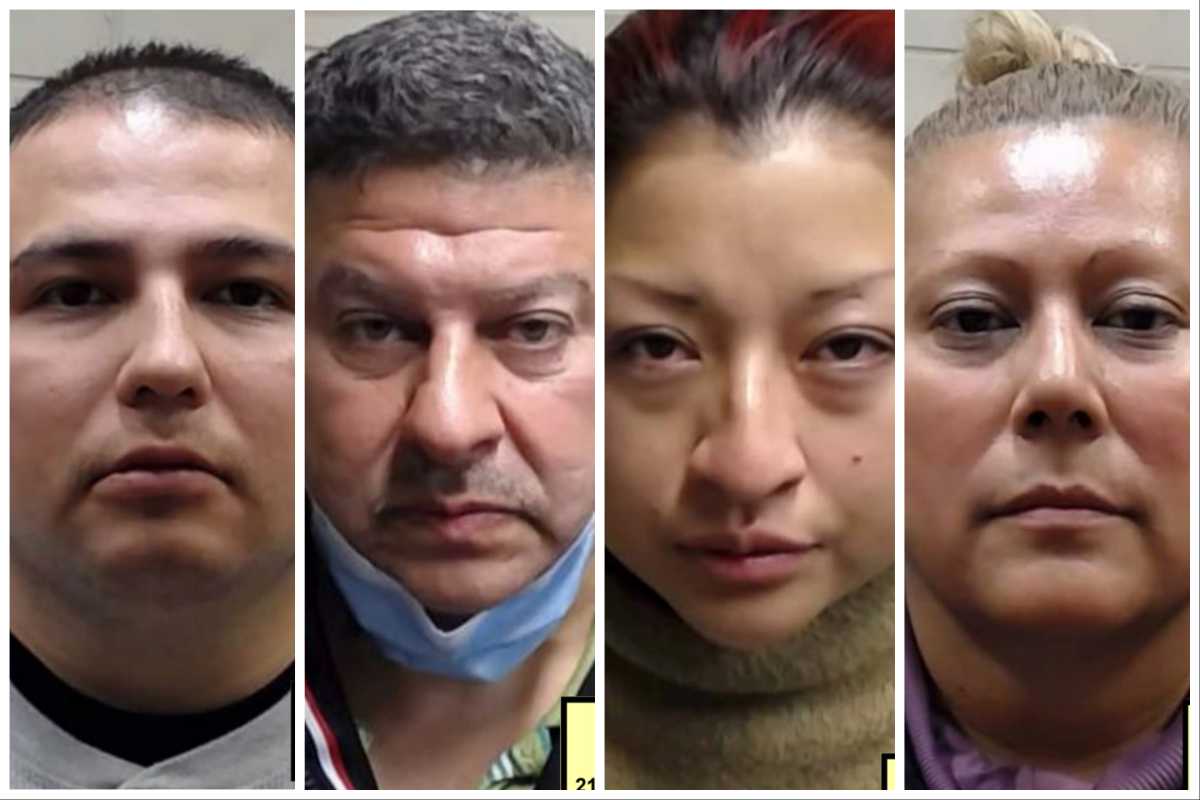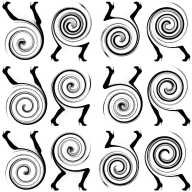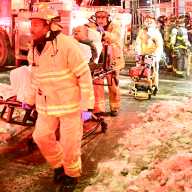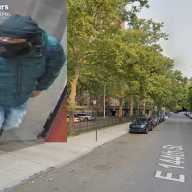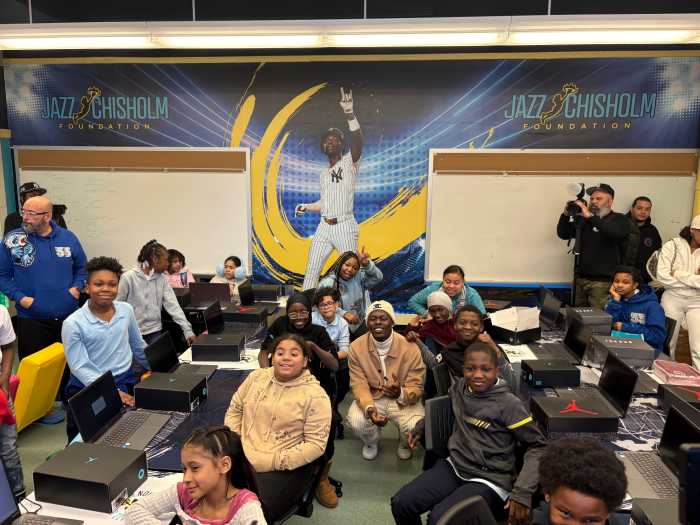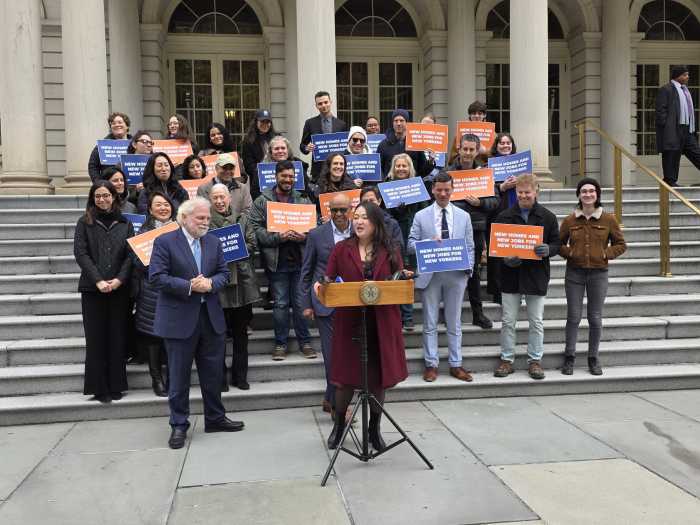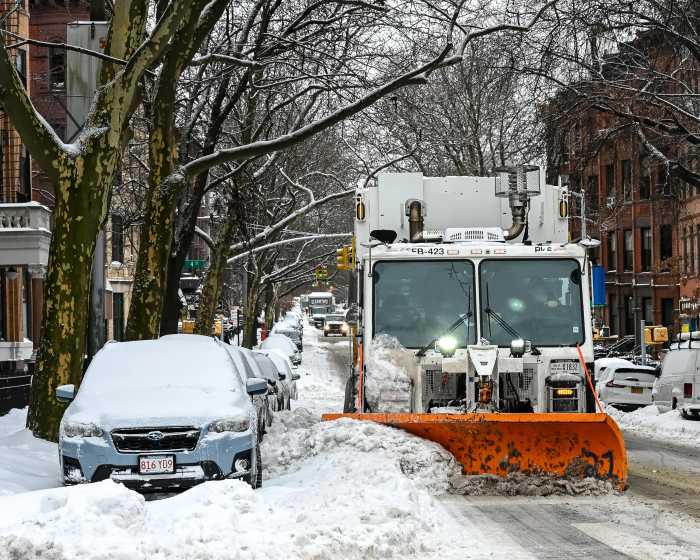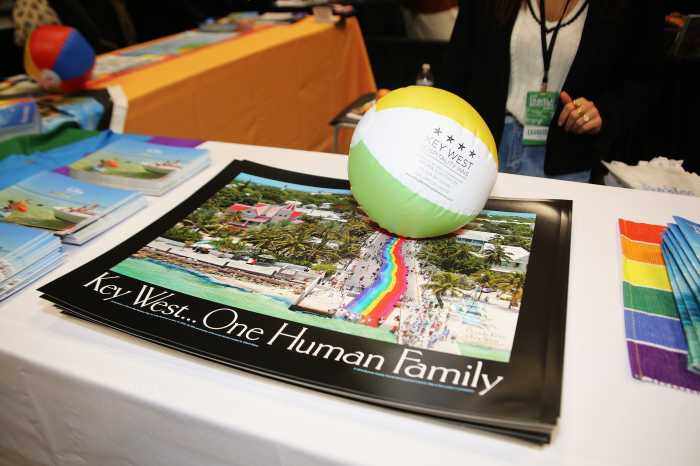Assembly Member Rebecca Seawright (D-Manhattan) hosted a town hall Tuesday evening at the Upper East Side’s Lenox Hill Neighborhood House, gathering rabbis, Jewish advocates, and educators to speak on a panel about antisemitism.
The panel focused on the rise in antisemitic incidents in New York City and across the United States since Hamas’ Oct. 7, 2023, attack on Israel. Panelists discussed a rise in anti-Israel sentiment and emphasized the need for security, education, and strict policy enforcement on college campuses to effectively combat antisemitism.
“I know this fight personally,” Seawright said at the start of the town hall, citing the 2020 vandalism of her office, accompanied by an antisemitic handwritten note. “It was a stark reminder that hate festers when we do not confront it directly.”
‘Silence is death’ in the fight against antisemitism
Jay Hershenson, Seawright’s husband, moderated the panel and gave the first question to Sami Steigmann, a Holocaust survivor and motivational speaker who served in the Israeli Air Force. Steigmann spoke to his own experience with antisemitism and urged attendees of the town hall to speak up when they see antisemitic hate.
“Do not be afraid to talk,” Steigmann said. “Silence is death.”
The Anti-Defamation League, which tracks antisemitism in the United States, reported a sharp spike in antisemitic incidents in the aftermath of Oct. 7. An “antisemitic incident” is defined by the ADL as verbal or written harassment, vandalism, and physical assaults.
ADL New York/New Jersey Region Associate Director Debra Plafker sat on Tuesday’s panel and said it is important to set “clear parameters” for what constitutes antisemitism, specifically in elementary, middle, and high schools.
“There needs to be a clear definition of antisemitism embraced within the schools, by the schools, and by the school district to better understand what is not often understood: that it’s more than just religious hatred,” Plafker said.
The ADL has urged schools and universities to adopt the International Holocaust Remembrance Alliance’s definition of antisemitism, which defines antisemitism as “a certain perception of Jews, which may be expressed as hatred toward Jews.”
“Rhetorical and physical manifestations of antisemitism are directed toward Jewish or non-Jewish individuals and/or their property, toward Jewish community institutions and religious facilities,” the definition reads.
The IHRA definition is accompanied by 11 examples that “may serve as illustrations” of how antisemitism manifests. The definition has been criticized for including certain forms of criticism of the state of Israel in its examples.
Plafker said that the definition should not necessarily be used to determine discipline, but should serve as a guide when schools seek to identify antisemitism.
“I don’t like the word enforcement,” Plafker said, “but why have policies if they’re not upheld?”
Antisemitism at universities
The panel moved to discuss antisemitism at universities, specifically citing Columbia University’s recent $220 million deal with President Donald Trump’s administration to dismiss a Title VI antisemitism violation and resume federal research funding. Columbia will pay the federal government a $200 million settlement and establish a $21 million fund for Jewish employees through the Equal Employment Opportunity Commission in return for $400 million in canceled grants and backpay of previously frozen funds.
As part of the deal, Columbia agreed to a slew of policy and administrative changes aimed at combating antisemitism. The University also agreed to cease using “diversity narratives” in hiring, ask international applicants why they want to study in the United States, and develop “training materials to socialize all students to campus norms and values more broadly.”
Columbia further agreed to an independent monitor that will track its enforcement of the agreement, raising questions across higher education about the role of federal oversight in university operations.
“Columbia’s $200 million settlement is just the start,” said Julia Yablans, an intern at the Simon Wiesenthal Center. “Universities are facing a reckoning.”
Yablans said that universities looking to combat antisemitism should establish “zero-tolerance” for antisemitism in their codes of conduct, implement “rapid response teams” to respond to antisemitic incidents, and outline a clear definition of antisemitism.
Bella Schneider, a campus regional manager for the Stand With Us tri-state region, discussed the line between protected protest speech and antisemitic hate speech. Any protest rhetoric should stick to “legitimate criticism” of policy, Schneider said, rather than a “specific and direct threat of violence.”
Schneider noted the phrase “globalize the intifada,” the use of which has been hotly contested as some argue that it is a call for violence against Jewish people. In contrast, others say it is a call for Palestinian liberation. Such phrases, Schneider said, are not legitimate forms of political speech on college campuses.
Schneider also said protests outside campus Hillel or Chabad centers are unacceptable.
Brandon Pinsker, associate director of the American Jewish Committee, discussed the importance of combating antisemitism and hate speech online and in artificial intelligence programming.
“We have to train AI models to properly identify antisemitism, and we can do this by incorporating antisemitic tendencies into their training data to ensure that their learned language models … are not trained to share antisemitic content,” Pinsker said.
Earlier this month, Elon Musk’s AI chatbot Grok began spewing antisemitic language and tropes before being temporarily disabled. Pinsker said that social media companies need to be “held accountable” for promoting or enabling antisemitic speech.
Michael Miller, a rabbi and the former CEO of the Jewish Community Relations Council of New York, alluded to political candidates and public officials who do “not believe that Israel has the right to exist as a Jewish state,” calling the assertion an “antisemitic statement.”
“This isn’t just the delegitimization of Israel, it’s the delegitimization of Jews, as if we don’t exist,” Miller said.
Assembly Member and Democratic nominee for mayor Zohran Mamdani (D-Queens) has faced accusations of antisemitism throughout his campaign for his criticisms of Israel and his hesitancy, until recently, to discourage the use of the term “globalize the intifada.” Mamdani has also drawn criticism from those in the pro-Israel Jewish community over his refusal during a debate to recognize Israel as a Jewish state, though he said he believed it has a “right to exist as a state with equal rights.”
Gary Marcus, the commanding officer for the NYPD’s Hate Crime Task Force, discussed the city’s efforts to fight against hate crimes.
“Everybody has a role to play,” Marcus said. “The Hate Crime Task Force, our role is to evaluate essentially every single crime that happens in the City of New York, determine if there is a political bias, and ultimately, if there is, find that perpetrator.”
Marcus said Mayor Eric Adams has been a “tremendous ally” in the fight against antisemitism. Adams is running for reelection as an independent on the “EndAntisemitism” party line.
Michael Cohen, executive vice president at the Auschwitz Jewish Center Foundation, gave closing remarks and a call to action, urging attendees at the town hall to work to keep engaging with stakeholders about Jewish issues and to “move the needle” on antisemitism.



